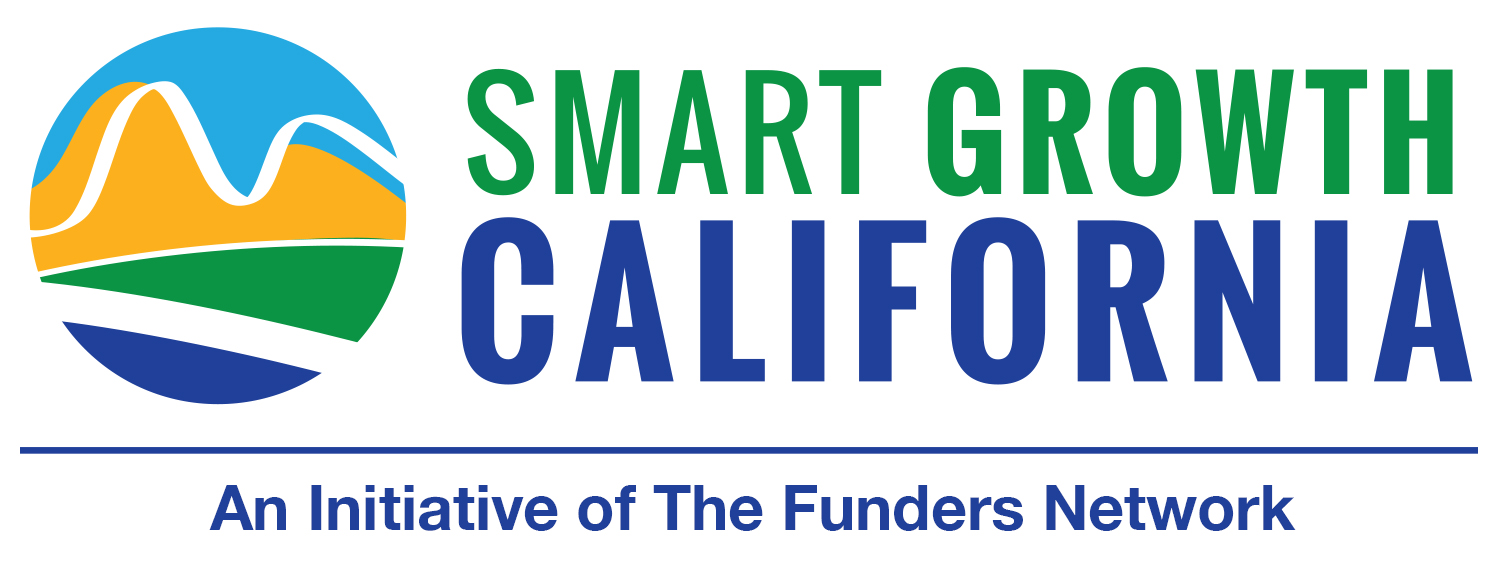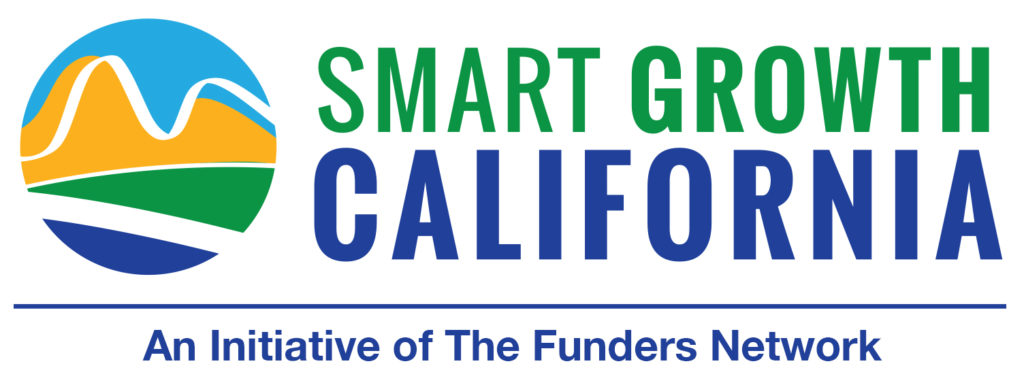On June 15, 2017, Smart Growth California hosted a webinar for funders with Randall Winston, Executive Director of the Strategic Growth Council (SGC) and Daniela Simunovic, SGC’s Senior Program Analyst, to learn about the new Transformative Climate Communities program and the role that funders can play in its implementation. In this blog, we summarize the highlights of the webinar.
Investing Cap-and-Trade Funds in Disadvantaged Communities
Since California’s cap-and-trade program took effect in 2012, California has invested billions of dollars in auction proceeds into a wide range of projects to reduce greenhouse gas emissions, from affordable housing in Stockton to new electric powered rail cars in the Bay Area.
Since 2012, there has also been a concerted effort to ensure that these cap-and-trade funds are being adequately invested in disadvantaged communities. Under SB 535, this is mandatory: a minimum of 25 percent of the total investments from the cap-and-trade program must benefit disadvantaged communities, and a minimum of 10 percent must be invested within and provide benefits to those communities. In 2016, the Legislature went further and passed AB 1550, which increases the place-based requirement to 25 percent, ensuring that more of the funds will be spent on projects directly located within disadvantaged communities.
State legislators and staff have been working with community groups and other stakeholders to figure out how to make it easier for disadvantaged communities to access cap-and-trade funds by coordinating strategies, simplifying the application process, and improving accessibility of the dollars to communities most in need. In addition, last year the Legislature passed AB 2722, establishing the Transformative Climate Communities Program. AB 2722 requires the California Strategic Growth Council to set up a competitive process to award monies to neighborhood-scale projects that will reduce greenhouse gas emissions and provide local, environmental, economic, and health benefits to disadvantaged communities.
Today, the Transformative Climate Communities (TCC) Program is ramping up, with plans to invest $140 million into three of California’s most impacted and disadvantaged communities: $70 million in Fresno, $35 million in Los Angeles, and $35 million in a third location still being determined. The communities that will receive funding in the TCC’s first year were identified as some of the top 5 percent most disadvantaged communities in California through the State’s CalEnviroScreen, a tool designed to identify those communities disproportionately impacted by multiple sources of pollution.
Under AB 2772, communities must identify enough additional funds to provide a 50 percent match to the funds granted through TCC for each funded project in order to leverage the dollars invested. In reviewing the applications, the Strategic Growth Council will also look for clear plans to avoid displacement and gentrification, as well as to create meaningful ongoing community engagement. The Strategic Growth Council will require that communities’ plans incorporate how they will track and monitor greenhouse gas emission reduction and other indicators, plus be responsive to the ever-changing landscape that is being shaped by climate change.
The Strategic Growth Council will also award approximately $1.5 million for Planning Grants in up to ten communities, intended to facilitate community readiness for future funding through the State and/or other sources.
How Funders Can Make a Difference in the Transformative Climate Communities Program
Mr. Winston and Ms. Simunovic see funders as critical stakeholders and leaders in bringing together diverse partners to participate in TCC. Already, funders in Los Angeles and Fresno are participating in discussions and helping to craft visions for potential projects.
There are many ways for foundations to be involved in helping communities leverage TCC to make the greatest impact:
- Serve as the lead applicant or as co-applicants joining with other community partners to apply for funds;
- Contribute towards the required 50 percent match in funds, including by using mission-related investments;
- Provide funds for technical assistance to local community-based organizations and nonprofits which can help ensure disadvantaged communities have the capacity to compete for the funds;
- Provide needed community engagement funding to nonprofits to ensure residents can play an authentic and meaningful role throughout the process; and
- Provide logistical support (meeting space, interpretation, child care, facilitation) throughout the process for inclusive community meetings.
What’s Next
The Strategic Growth Council recently released a new program timeline in the July TCC Staff Report. They will release an additional version of the draft guidelines (the most recent guidelines can be found here) on July 26th for a short public comment period through August 2nd. Proposed final guidelines will be posted on August 14th and the Council will consider adopting the guidelines at their meeting on August 24th in Sacramento from 10 am-1:00 pm. If the guidelines are approved by the Council, SGC will release the Call for Proposals on August 25th.
In addition, the California Air Resources Board just released the draft Greenhouse Gas Emissions Quantification Methodology for TCC with a public review and comment period ending August 2nd.
Thank you to the many funders in the Smart Growth California community who participated in the webinar and to Mr. Winston and Ms. Simunovic for their efforts to get this exciting new program off the ground.
Photo credit: Flickr 1Flatworld

